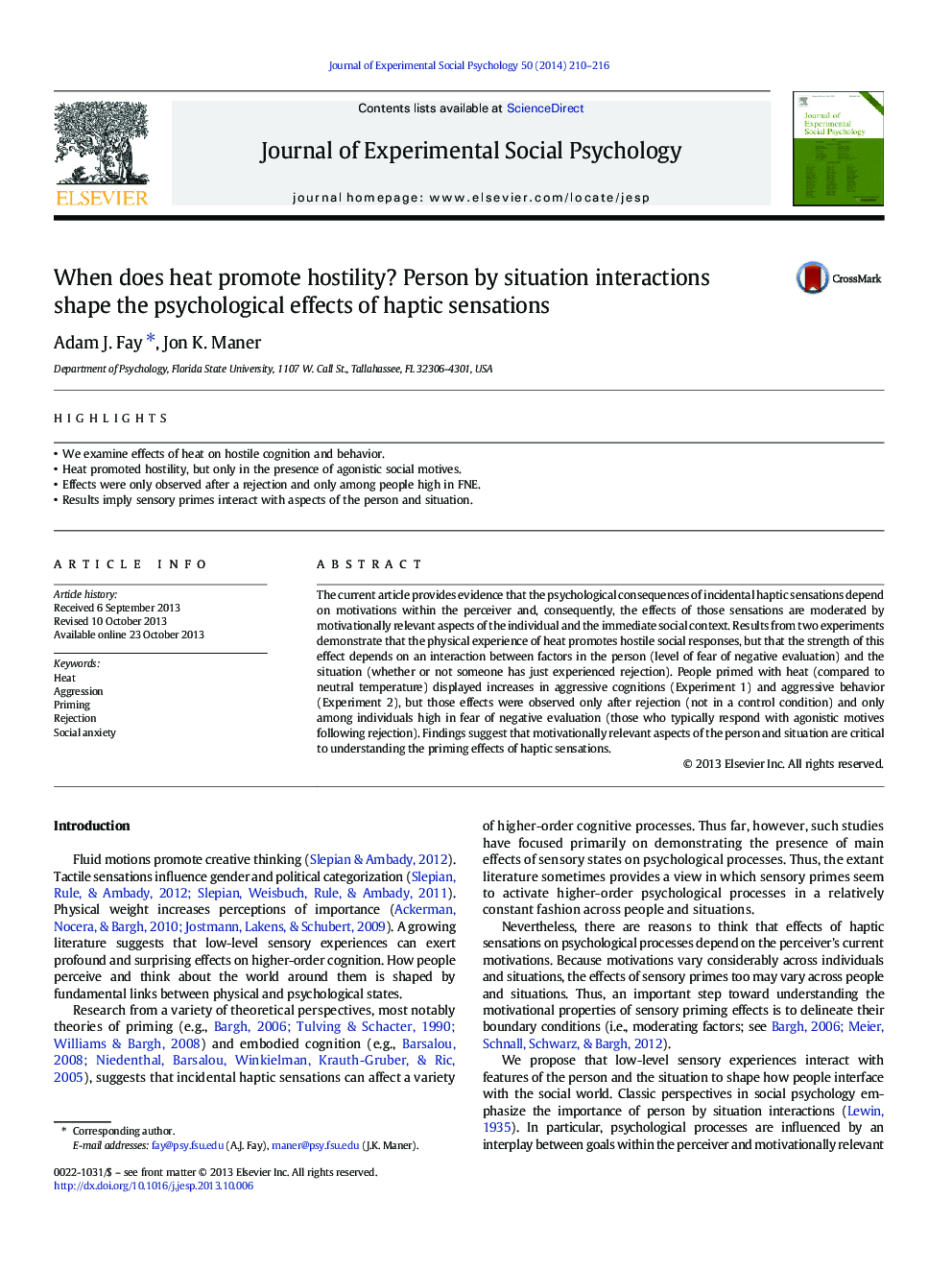| Article ID | Journal | Published Year | Pages | File Type |
|---|---|---|---|---|
| 7324947 | Journal of Experimental Social Psychology | 2014 | 7 Pages |
Abstract
The current article provides evidence that the psychological consequences of incidental haptic sensations depend on motivations within the perceiver and, consequently, the effects of those sensations are moderated by motivationally relevant aspects of the individual and the immediate social context. Results from two experiments demonstrate that the physical experience of heat promotes hostile social responses, but that the strength of this effect depends on an interaction between factors in the person (level of fear of negative evaluation) and the situation (whether or not someone has just experienced rejection). People primed with heat (compared to neutral temperature) displayed increases in aggressive cognitions (Experiment 1) and aggressive behavior (Experiment 2), but those effects were observed only after rejection (not in a control condition) and only among individuals high in fear of negative evaluation (those who typically respond with agonistic motives following rejection). Findings suggest that motivationally relevant aspects of the person and situation are critical to understanding the priming effects of haptic sensations.
Related Topics
Life Sciences
Neuroscience
Behavioral Neuroscience
Authors
Adam J. Fay, Jon K. Maner,
